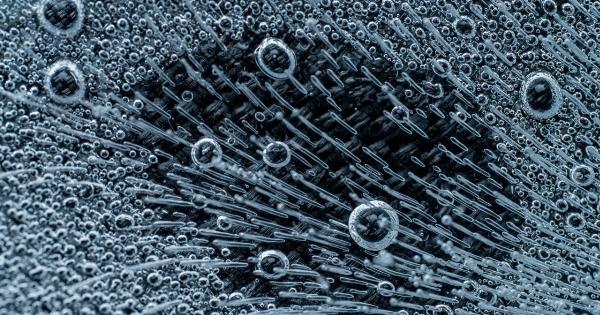Iron is an essential mineral that plays a vital role in various bodily functions. It is responsible for the production of red blood cells, which carry oxygen to different parts of the body.
Without sufficient iron levels, the body may not be able to function properly, leading to several health problems. One such problem is an increased risk of stroke.
What is Stroke?
Stroke occurs when the blood flow to a part of the brain is disrupted, causing brain cells to be deprived of oxygen and nutrients. This can happen due to a blocked blood vessel (ischemic stroke) or a ruptured blood vessel (hemorrhagic stroke).
Regardless of the type, strokes are a medical emergency and can lead to severe complications or even death.
The Link Between Iron Levels and Stroke Risk
A growing body of evidence suggests that there is a link between low iron levels and an increased risk of stroke.
Iron deficiency anemia, a condition characterized by low levels of iron in the body, has been found to be associated with a higher incidence of stroke.
A study published in the journal Stroke found that individuals with iron deficiency anemia had a significantly higher risk of both ischemic and hemorrhagic strokes compared to those without the condition.
The researchers suggested that the lack of iron in the body may contribute to the formation of blood clots or weakened blood vessels, both of which can lead to strokes.
The Role of Iron in Stroke Prevention
Maintaining adequate iron levels in the body is crucial for stroke prevention. Iron helps in the production of hemoglobin, a protein found in red blood cells that carries oxygen.
Sufficient oxygen supply to the brain is vital for its proper functioning and reducing the risk of strokes.
In addition to oxygen transport, iron also plays a role in the production of certain enzymes that protect against oxidative stress.
Oxidative stress is a condition in which there is an imbalance between antioxidants and harmful molecules called free radicals. High levels of oxidative stress can damage blood vessels and increase the risk of stroke.
Symptoms of Iron Deficiency Anemia
Iron deficiency anemia is a common condition that can go unnoticed for a long time. However, there are several symptoms that may indicate low iron levels in the body. These symptoms include:.
- Fatigue and weakness
- Shortness of breath
- Pale skin
- Headaches and dizziness
- Difficulty concentrating
- Heart palpitations
- Brittle nails
If you experience any of these symptoms, it is important to consult with a healthcare professional who can perform blood tests to determine your iron levels.
Iron-Rich Foods to Reduce Stroke Risk
Increasing your intake of iron-rich foods can help maintain optimal iron levels in the body and reduce the risk of stroke. Some of the best dietary sources of iron include:.
- Red meat
- Shellfish
- Spinach and other leafy greens
- Lentils and beans
- Quinoa
- Tofu
- Pumpkin seeds
- Dark chocolate
It is important to note that iron from plant-based sources (non-heme iron) is not as easily absorbed by the body compared to iron from animal-based sources (heme iron).
To enhance iron absorption from plant-based foods, it is advisable to consume them along with foods rich in vitamin C, such as citrus fruits or bell peppers.
Iron Supplements for Stroke Prevention
In some cases, dietary changes alone may not be sufficient to maintain optimal iron levels. This is where iron supplements can play a role.
Iron supplements should be taken under the guidance of a healthcare professional, who can determine the appropriate dosage based on your iron levels and overall health.
It is important to note that excessive iron intake can have adverse effects on health. Therefore, it is crucial to follow your healthcare professional’s recommendations regarding iron supplementation.
Conclusion
Low iron levels can have serious implications for overall health, including an increased risk of stroke.
Iron deficiency anemia, characterized by low iron levels, has been found to be associated with a higher incidence of both ischemic and hemorrhagic strokes. Maintaining adequate iron levels through a balanced diet and, if necessary, supplementation can help reduce the risk of stroke.
If you suspect low iron levels or experience any symptoms of iron deficiency anemia, consult with a healthcare professional for proper diagnosis and treatment.































